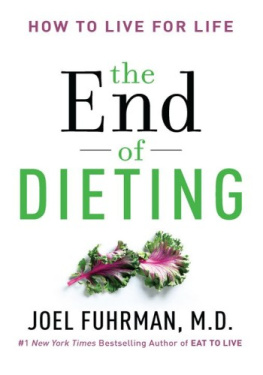

Copyright 2015 Spry Publishing LLC
All rights reserved under International and Pan American Copyright Conventions.
No part of this book may be reproduced or transmitted in any form or by any means electronic or mechanical including photocopying, recording, or by any information storage and retrieval system, without permission in writing from the publisher.
This edition is published by Spry Publishing LLC
315 East Eisenhower Parkway, Suite 2
Ann Arbor, MI 48108 USA
10 9 8 7 6 5 4 3 2 1
Library of Congress Control Number: 2014950377
E-book ISBN: 978-1-938170-57-7
Disclaimer: Spry Publishing LLC does not assume responsibility for the contents or opinions expressed herein. Although every precaution is taken to ensure that information is accurate as of the date of publication, differences of opinion exist. The opinions expressed herein are those of the author and do not necessarily reflect the views of the publisher.
The information contained in this book is not intended to replace professional advisement of an individuals doctor prior to beginning or changing an individuals course of treatment.
To my mother-in-law Yvonne Kovner, who demonstrated great courage, compassion, and caring in her life.
Contents
Unless you have been living on a desert island or otherwise cut off from civilization, you know that weight problems have reached epidemic proportions in America. Two of every three adults are overweight or obese, driving up healthcare costs and disability and causing dramatic declines in productivity and quality of life. It is the health crisis of our lifetime. And to date, medicine has failed to help those struggling with its fallout.
For nearly a century, the medical establishment has considered obesity a condition of unsatisfactory dietary bookkeeping, where calories in exceed energy out.
But, what we know about the biology of overweight and obesity has changed dramatically in the past 20 years, and exciting new scientific discoveries are expanding the tool set with which we have to work. Discoveries of key gut hormones and brain pathways that control weight gain and loss have led to new drug and surgical treatments. This is important, because the same body of research explains why, for the majority of people, the traditional prescription of diet and exercise is not enough to achieve significant, sustainable weight loss and related health benefits.
If youve picked up this book, you have probably experienced this firsthand. And, youre looking for a solution to your weight and health issues that actually works. And, youre now wondering why doctors are telling you to eat less and move more if its not a long-term solution for most people. You arent alone. I wonder why many in the medical profession continue to be satisfied with this advice when it clearly has not been effective. Its obvious were missing something.
The simple answer is that the new obesity science we explore in this book is still unknown to most doctors who have been in practice for more than five years. But, before you pick up the phone to fire your doctor, understand that theres a reason for this. All physicians learn their basic science and biology in medical school (myself included). Then there are years of hospital training before we start to practice. And, while we have access to new pharmaceutical and treatment options, staying up-to-date on advances in core science concepts requires time and resources most of us dont have. So, we pick and choose our areas of focus, usually those that have the biggest impact on the patients we serve. Thats why we have medical specialties; theres simply too much evolving medical science out there for one person to keep up with everything.
And thats okay. As an internist, there are a lot of conditions that I am not up-to-date on, since I am not a specialist that treats them. I am not up-to-date on the latest treatment for psoriasis, or multiple sclerosis, or Parkinsons disease. I dont see patients for these conditions, and if I do, I refer them to the dermatologist, or neurologist, or geriatrician who can provide them with the specialized care they need.
Obesity, however, is a different story. With two-thirds of Americans overweight or obese today, the odds are that every primary care provider in this country has a daily encounter with a patient needing informed guidance on weight-related health problems. To be on the front lines of primary care demands that we become educated in the science of weight management and understand the root of the problem. Internists such as myself, family practice doctors, pediatricians, cardiologists, and other physicians seeing these patients on a regular basis owe it to them to stay current in this field. We cant afford not to.
Recently, the Journal of the American Medical Association published an editorial that summed up the problem with traditional approaches to weight management beautifully: Attempts to lower body weight without addressing the biologic drivers of obesity will inevitably fail for most individuals. Now, its not too often that I agree with editorials, but this one I applaud. Those biologic drivers the authors refer to change the way our metabolism, our hormonal systems, and nervous system wiring works in an adaptive effort to protect us against weight loss. The truth is that if you are struggling with excess weight, your body is working against you. We need to stop setting the obese and overweight up for failure by ignoring this fact.
Just as important as staying current in obesity science is that physicians recognize the very individual nature of each person who struggles with weight issues and set more effective goals focused on health, not pounds. Someone who is 100 pounds overweight and dealing with high blood pressure and joint pain can benefit tremendously from taking off just 20 percent of their excess weight versus focusing on the entire 100 pounds. On the other side of the coin, there are also people who are overweight, yet metabolically fit, who may not require any intervention at all.
You, the patient, play the most important role in the battle against obesity-related health. None of the available treatments we have will work without your commitment to real-life changes. Denial is one of the strongest and most protective emotional mechanisms we have; when it prevents us from recognizing the gravity of a weight-related health issue, it can be harmful, even fatal. To manage weight and health, you need to acknowledge the problem and give your doctor permission to help you.
There is still a gap between the new science of obesity and the ability to translate and implement it into actionable treatments that make a clinical impact on weight-related health issues. The holy grail of weight management has not yet been discovered, but I have no doubt that with the way obesity science is progressing, it is coming. The gap is narrowing.
In the meantime, we have a pretty effective arsenal of treatment options that target the biological triggers of weight gain and take the patients lifestyle and personal needs into consideration. For some, effective treatment is drug therapy, and for others surgery may be the answer. Many struggling with weight can benefit from better sleep hygiene (a variety of different practices that are necessary to have normal, quality nighttime sleep and full daytime alertness) and stress management. And, yes, the composition of the diet and changes in the intensity and the nature of physical activity do make a difference in your overall health and are part of the obesity equation (they just arent the whole solution for most people).
Next page








